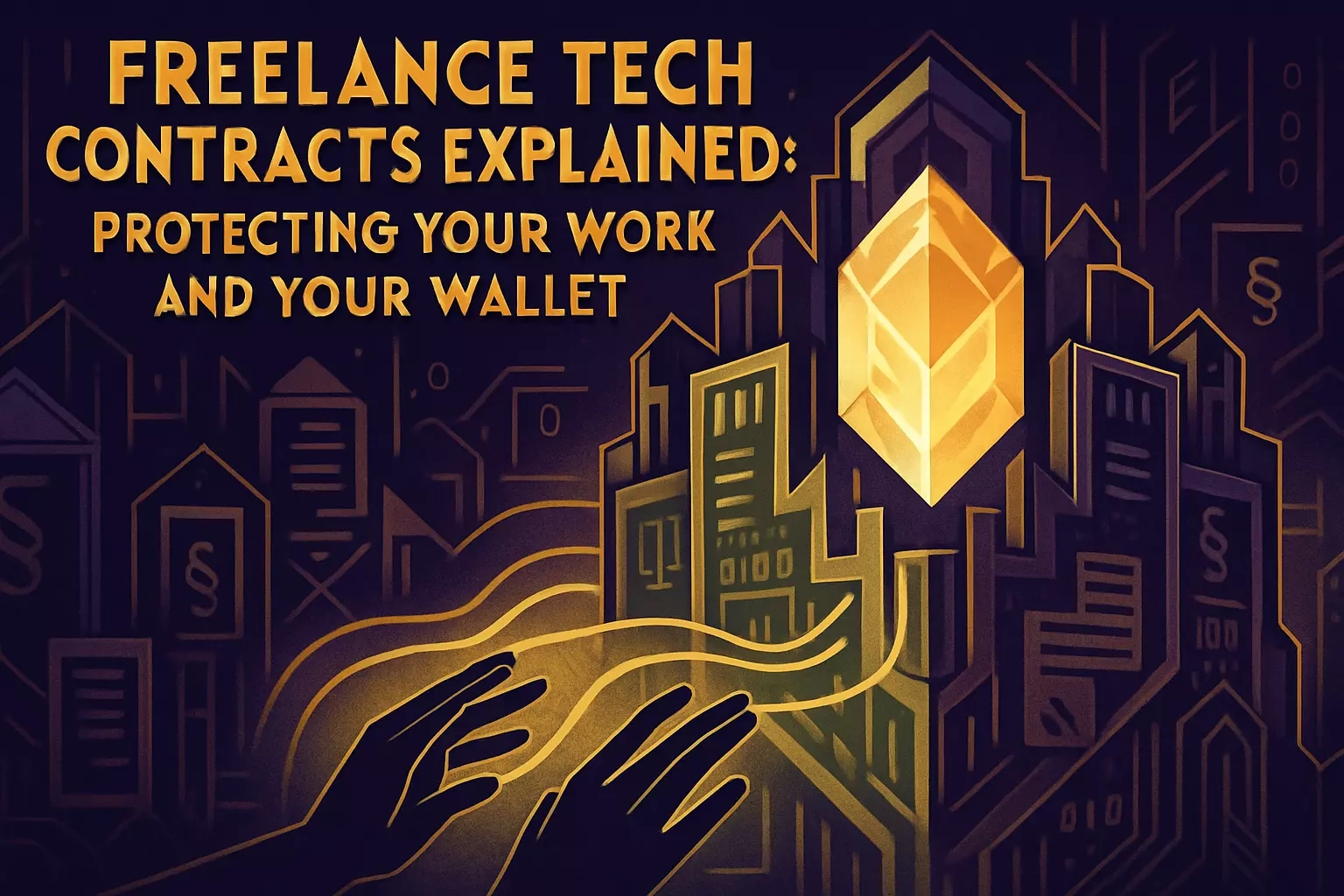Freelance Tech Contracts Explained: Protecting Your Work and Your Wallet

Freelance Tech Contracts Explained: Protecting Your Work and Your Wallet
The Indispensable Role of Contracts in Freelance Tech
Why Verbal Agreements Aren't Enough
What a Good Contract Achieves for Both Parties
Essential Clauses Every Freelance Tech Contract Should Include
Scope of Work (SOW)
Payment Terms and Schedule
Intellectual Property (IP) Rights
Confidentiality Clause (NDA)
Termination Clause
Revisions and Feedback Process
Limitation of Liability
Independent Contractor Clause
Dispute Resolution
Understanding Intellectual Property in Tech Freelancing
Ownership of Code, Designs, and Content
Use of Open Source or Third-Party Assets
Protecting Your Pre-Existing IP
Navigating Payment Issues and Financial Protection
Invoicing Best Practices
Securing Upfront Deposits or Milestone Payments
Handling Late Payments and Non-Payment
Contract Templates vs. Custom Agreements
Pros and Cons of Using Contract Templates
When to Consult a Legal Professional
Conclusion
References
Freelance Tech Contracts Explained: Protecting Your Work and Your Wallet
The Indispensable Role of Contracts in Freelance Tech
Why Verbal Agreements Aren't Enough
What a Good Contract Achieves for Both Parties
Essential Clauses Every Freelance Tech Contract Should Include
Scope of Work (SOW)
Payment Terms and Schedule
Intellectual Property (IP) Rights
Confidentiality Clause (NDA)
Termination Clause
Revisions and Feedback Process
Limitation of Liability
Independent Contractor Clause
Dispute Resolution
Understanding Intellectual Property in Tech Freelancing
Ownership of Code, Designs, and Content
Use of Open Source or Third-Party Assets
Protecting Your Pre-Existing IP
Navigating Payment Issues and Financial Protection
Invoicing Best Practices
Securing Upfront Deposits or Milestone Payments
Handling Late Payments and Non-Payment
Contract Templates vs. Custom Agreements
Pros and Cons of Using Contract Templates
When to Consult a Legal Professional
Conclusion
References
Posted Jun 11, 2025
Navigate the legal side of freelance tech with confidence. Understand key contract clauses, payment terms, and intellectual property rights to secure your business.








